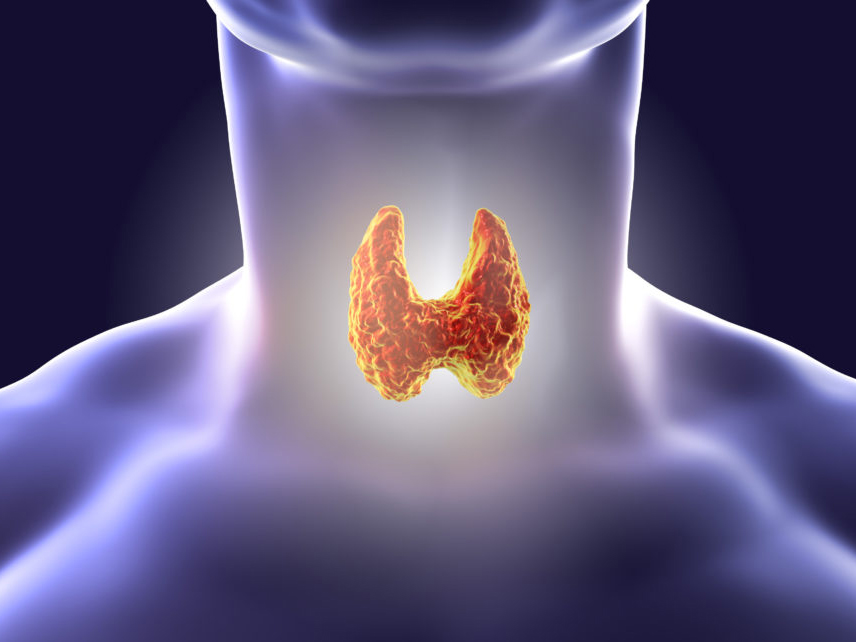The Keto Diet and Thyroid Function
Confused about the keto diet and thyroid function? Read on to learn more.
When you think of the health conditions affected by blood sugar… diabetes, metabolic syndrome and obesity probably come to mind. But you might not know that blood sugar also plays a vital role in the health of your thyroid.
In fact, thyroid function and blood sugar metabolism have a close and interdependent relationship. To achieve healthy thyroid function, you need to keep your blood sugar in a healthy range. And to keep your blood sugar in a healthy range… you need to have healthy thyroid function.
Today, we’ll delve into:
- The link between blood sugar and thyroid dysfunction
- Key tests to determine how well you metabolizing carbohydrates, and
- How to optimize your metabolism to improve thyroid and immune function.
The Link Between Blood Sugar & Thyroid Health
It is estimated that 25 to 30 million Americans (and 200 million worldwide) suffer from some type of thyroid disorder. Metabolic syndrome and insulin resistance affect up to 100 million Americans.
And considering the connection between blood sugar and the thyroid, it’s not surprising that people with diabetes and metabolic syndrome have a higher frequency of thyroid disorders.1,2,3
In fact, studies show that when insulin levels spike, it increases the destruction of the thyroid gland in people with autoimmune thyroid disease.4 Researchers also discovered that in people with autoimmune disease, depleted levels of T-regulatory cells (the immune cells that help the body distinguish “self” vs. “non-self”) are a causative factor in insulin resistance.5
The High-Cortisol, Low-Thyroid Link
But it is not just high blood sugar levels (hyperglycemia) that can promote thyroid disorders. Low blood sugar levels (hypoglycemia) can also damage the thyroid.
Here’s why…
After eating a carbohydrate-rich meal, blood sugar spikes. This triggers a rush of insulin to shuttle excess glucose from the blood. But this can cause a pendulum effect, where blood sugar swings too low.
And because the body interprets low blood sugar as a threat to survival, the adrenal glands (responsible for “fight or flight” responses) secrete cortisol. This signals the liver to produce glucose to bring blood sugar back to a normal range. And while cortisol is vital, chronically-high levels of this stress hormone directly impact the thyroid by:
- Suppressing the pituitary gland, which is essential for thyroid function6,7
- Suppressing thyroid stimulating hormone (TSH), which reduces thyroid function8
- Increasing thyroid antibodies, which worsen autoimmune thyroid disease9
- Weakening immune barriers and promoting immune dysregulation10
- Reducing the conversion of inactive thyroid hormone (T4) to the active form (T3) that can be used by thyroid cells11
- Increasing thyroid resistance – a condition where thyroid receptors require more and more thyroid hormone to function correctly12
- Reducing the liver’s ability to clear estrogen from the blood. Excess estrogen boosts thyroid binding globulin (TBG) – a protein that reduces thyroid hormones13
As you can see, poor blood sugar regulation creates a cascade of negative effects that can have a big impact on how your thyroid is working.
Keto Diet and Thyroid: Control Your Blood Sugar to Improve Thyroid Function
Of course, there are many aspects of your diet and lifestyle that can impact thyroid function. Heavy metal toxicity, leaky gut, food intolerances, oxalate sensitivity, hidden infections, nutrient deficiencies and many other factors can play a role.
But blood sugar dysregulation is one of the most common culprits of thyroid problems. It is also one of the easiest to target. The great news is that many who suffer from thyroid disorders experience improved symptoms and functional markers by adopting a low-carb diet.
In a 2016 study, researchers divided 180 people with Hashimoto’s disease into two groups. One group followed a high-protein, low-carb (12-15% of calories) diet. This group also avoided legumes, eggs, dairy, gluten and goitrogens (compounds in certain plant foods that can hamper thyroid function). The control group followed a standard low-calorie diet that didn’t exclude any specific foods. At the end of the three-week study period, the low-carb group showed the following improvements:
- 44% decrease in TPO antibodies
- 40% decrease in antithyroglobulin antibodies
- 5% reduction in body weight
The presence of these antibodies is a sign that the thyroid is being attacked by the body’s own immune system. And reductions like those above represent a significant improvement.
So, what were the results of the low-calorie group with no food restrictions? This group experienced an average 9% increase in antithyroglobulin antibodies and a 16% increase in TPO antibodies! And while both groups lost weight, the low-calorie group lost more lean mass and less fat mass compared to the low-carb group.
What about Research that Low-Carb Diets are Bad for Thyroid Disorders?
It’s important to note that low-carb and ketogenic diets are often found to reduce levels of thyroid hormone (T3).14,15 This is normally interpreted as a sign that a thyroid condition is getting worse. So it’s no surprise that many doctors believe low-carb / keto diets are harmful to those with thyroid disease.
However, Dr. Stephen Phinney, MD, PhD strongly disagrees with this notion. Phinney has been performing metabolic research for almost 50 years and his work is extensively published in peer-reviewed journals.
He believes that reduction of T3 is an indication the body is becoming more sensitive to the hormones, due to beneficial changes in cell structure and function.16 In other words, as the receptors become more responsive, less thyroid hormone is needed (in much the same way that carb restriction increases sensitivity to insulin – and thus reduces circulating levels).
Dr. Phinney states that:
The only viable interpretation is that ketogenic diets markedly increase tissue sensitivity to T3. Thus serum T3 levels decline while the physiological response to T3 remains normal. In this scenario, both the thyroid and the liver have to do far less “work” to maintain normal thyroid response. Taking this one step further, why would anyone want to force their thyroid or liver to greater levels of thyroid hormone production by eating lots more carbohydrates? Forcing the pancreas to make more insulin by eating more carbs clearly doesn’t help type 2 diabetics. We think the same logic applies for thyroid function.
Whether you choose a ketogenic diet, a low carb diet or a very low carb diet, it’s important to know how your body reacts to carbohydrates… and which carbohydrates cause the biggest blood sugar spikes.
==============================================
HIGHLY RECOMMENDED: You do not have to give up your favorite
BREADS to follow a 100% ketogenic or low carb diet! Learn more…
==============================================
Optimize Your Macros to Optimize Thyroid Function
It’s important to remember that people can have very different reactions to the same food. For example, I may experience a strong blood sugar spike when I eat beets, while my response to eating potatoes is subdued. You might see a high blood sugar reading after eating tomatoes, but the numbers are normal after eating rice.17
A simple and inexpensive blood glucometer will give you valuable insight to how well you are controlling your blood sugar. Fasting glucose should be taken first thing in the morning before consuming anything (water is fine). However, glucose levels after a meal (postprandial) are an even more important predictor of diabetes than fasting blood sugar.18
To get the clearest picture of how you are metabolizing carbohydrates and controlling your blood sugar, it is important to take postprandial blood-glucose measurements at intervals of exactly one and two hours after your meal.19 The goal is a glucose reading of 140 mg/dL or less.20
In addition to monitoring your blood glucose and thyroid hormones at regular intervals, be sure to evaluate your hemoglobin A1C (HbA1c) and insulin levels to see how well you are controlling your blood sugar over time. Many people experience a relief of symptoms and improvement in overall hormone and thyroid health when adopting a lower carbohydrate, ancestral diet. Here are a few low carb, thyroid-boosting meal suggestions to get you started:
- Breakfast: Pork Breakfast Sausage & Avocado
- Lunch: Grass-Fed 75% Burger in Lettuce Wrap with Primal Kitchen Mayo
- Dinner: Roasted Pastured Chicken with Zoodles and Dairy-Free Pesto
- Snack: Mackerel, Sardines, Olives
Do you have Hashimoto’s or another thyroid disorder? If so, have you tried a low-carb diet? How has it affected your symptoms?




Hi Kelly, Thank you for the post. I have been Keto with 16/8 IF but stalled on T2D. I did an Cortisol test day and had 250% CAR response. I suspect low B12 due to malabsorption history which is responding to 6,000mcg daily sublingual +a B12 com-lex. Adding about 30 to 40 g of carbs with the evening meal has improved my hi cortisol symptoms and low Thyroid symptoms. A full thyroid panel suggested that my thyroid was healthy and down regulated (low T3 but good T3 conversion and sensitivity). Will let you know how this develops.